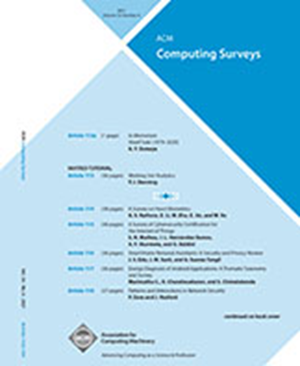物理引导的动力系统深度学习:综述
IF 28
1区 计算机科学
Q1 COMPUTER SCIENCE, THEORY & METHODS
引用次数: 0
摘要
复杂物理动力学建模是科学和工程中的一项基本任务。传统的基于物理的模型具有样本效率,并且可以解释,但通常依赖于严格的假设。此外,直接数值近似通常是计算密集型的,需要大量的计算资源和专业知识,并且许多现实世界的系统没有完全已知的控制定律。虽然深度学习(DL)为有效识别复杂模式和模拟非线性动力学提供了新的选择,但它的预测不一定遵守物理系统的控制定律,也不能很好地推广到不同的系统。因此,物理引导下的深度学习研究应运而生,并取得了很大的进展。物理引导的深度学习旨在充分利用基于物理的建模和最先进的深度学习模型,以更好地解决科学问题。在本文中,我们提供了将先验物理知识或基于物理的建模集成到深度学习中的现有方法的结构化概述,特别强调学习动态系统。我们还讨论了该地区的基本挑战和新出现的机遇。本文章由计算机程序翻译,如有差异,请以英文原文为准。
Physics-Guided Deep Learning for Dynamical Systems: A Survey
Modeling complex physical dynamics is a fundamental task in science and engineering. Traditional physics-based models are sample efficient, and interpretable but often rely on rigid assumptions. Furthermore, direct numerical approximation is usually computationally intensive, requiring significant computational resources and expertise, and many real-world systems do not have fully-known governing laws. While deep learning (DL) provides novel alternatives for efficiently recognizing complex patterns and emulating nonlinear dynamics, its predictions do not necessarily obey the governing laws of physical systems, nor do they generalize well across different systems. Thus, the study of physics-guided DL emerged and has gained great progress. Physics-guided DL aims to take the best from both physics-based modeling and state-of-the-art DL models to better solve scientific problems. In this paper, we provide a structured overview of existing methodologies of integrating prior physical knowledge or physics-based modeling into DL, with a special emphasis on learning dynamical systems. We also discuss the fundamental challenges and emerging opportunities in the area.
求助全文
通过发布文献求助,成功后即可免费获取论文全文。
去求助
来源期刊

ACM Computing Surveys
工程技术-计算机:理论方法
CiteScore
33.20
自引率
0.60%
发文量
372
审稿时长
12 months
期刊介绍:
ACM Computing Surveys is an academic journal that focuses on publishing surveys and tutorials on various areas of computing research and practice. The journal aims to provide comprehensive and easily understandable articles that guide readers through the literature and help them understand topics outside their specialties. In terms of impact, CSUR has a high reputation with a 2022 Impact Factor of 16.6. It is ranked 3rd out of 111 journals in the field of Computer Science Theory & Methods.
ACM Computing Surveys is indexed and abstracted in various services, including AI2 Semantic Scholar, Baidu, Clarivate/ISI: JCR, CNKI, DeepDyve, DTU, EBSCO: EDS/HOST, and IET Inspec, among others.
 求助内容:
求助内容: 应助结果提醒方式:
应助结果提醒方式:


